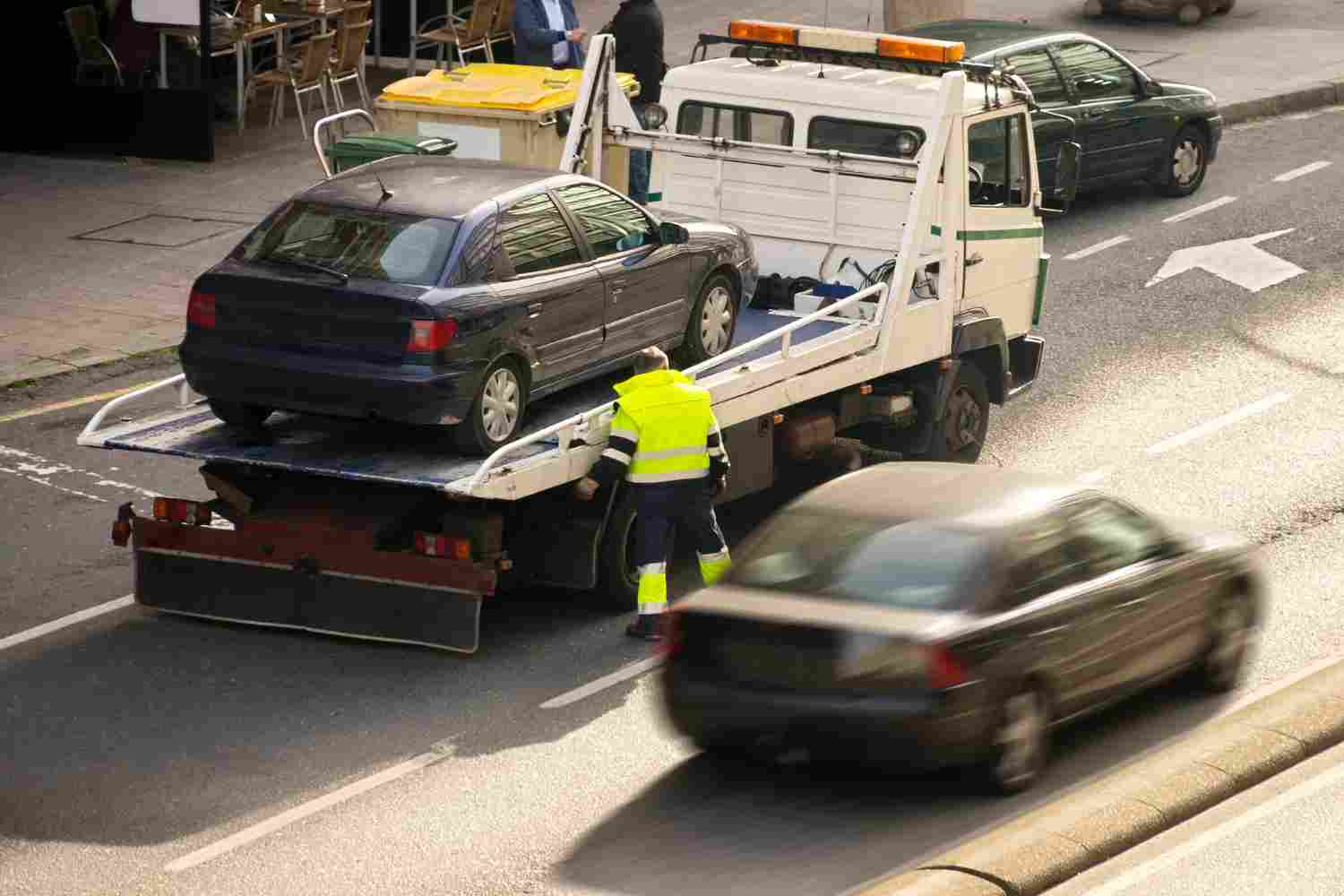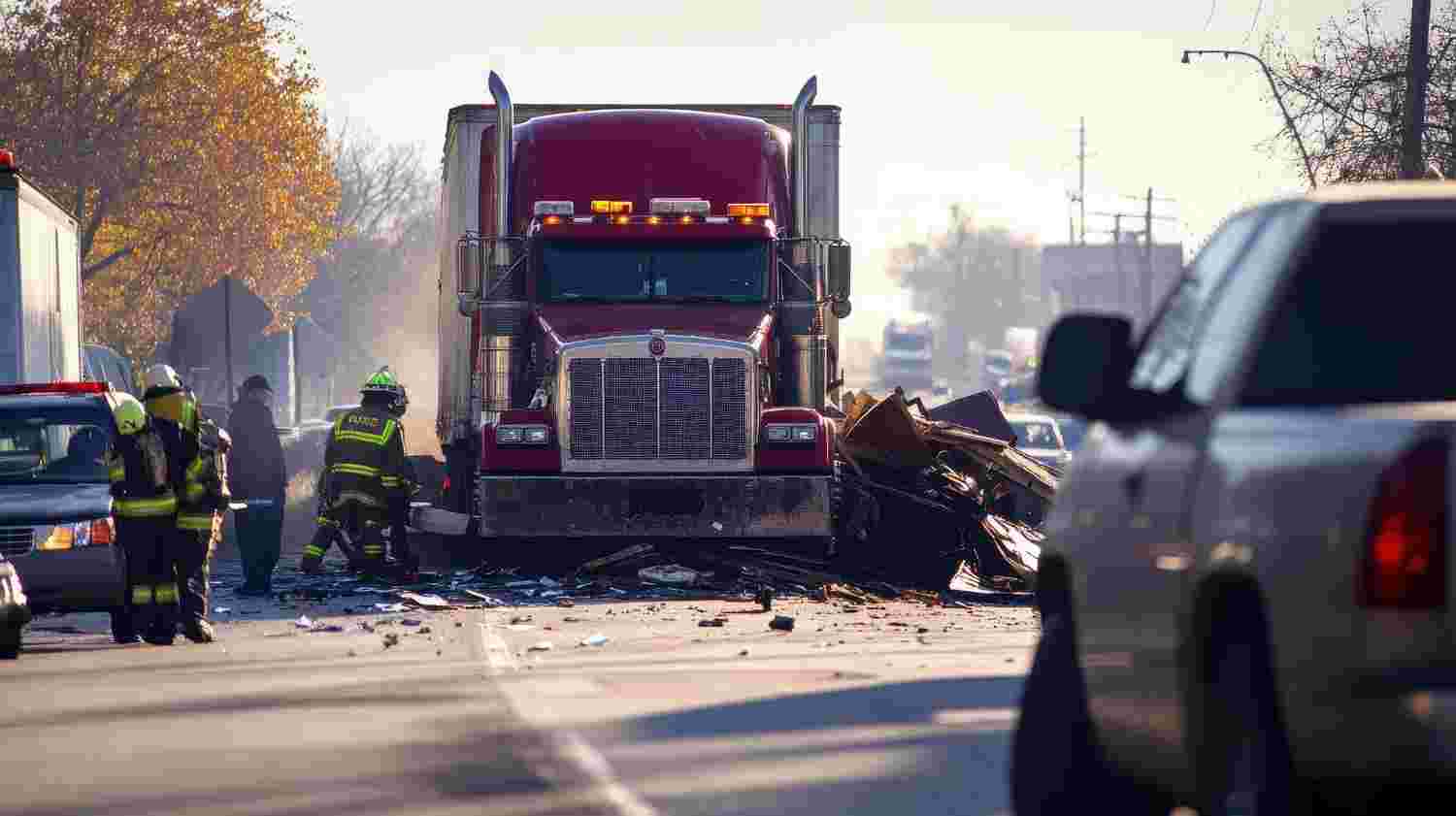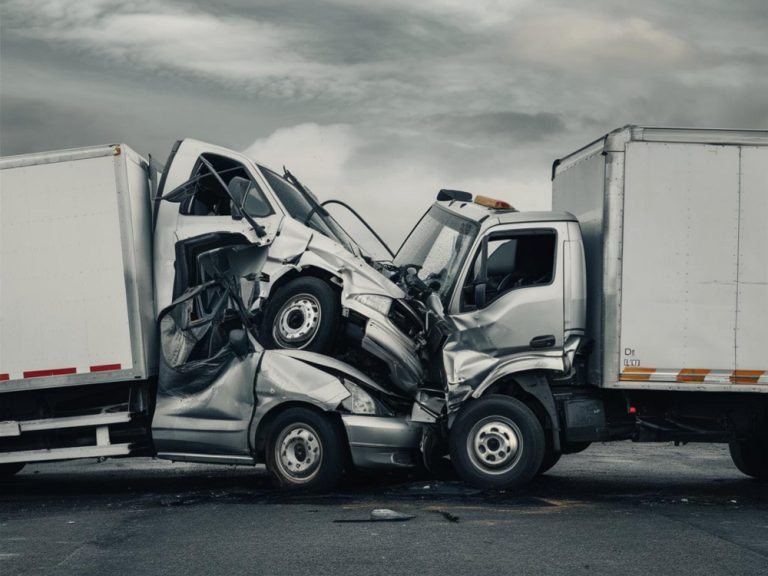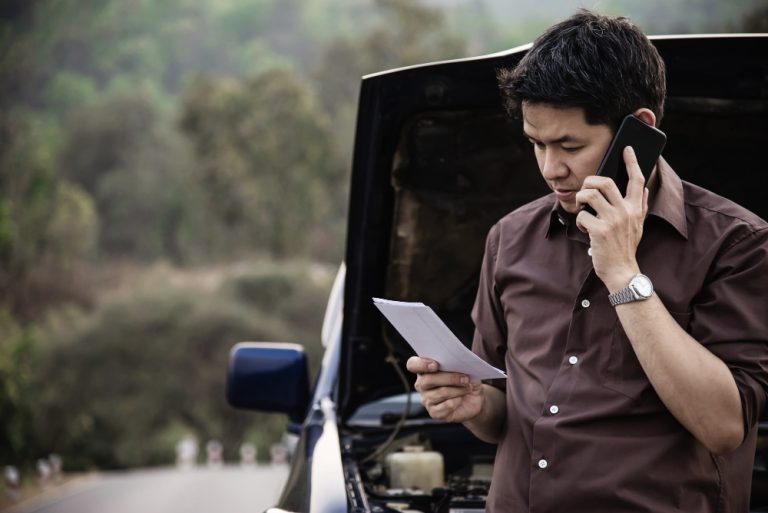Why? Because evidence is what proves fault, supports your claim, and maximizes your compensation. Without it, even a strong case can lose its value in the eyes of insurance companies or in court.
In this guide, we’ll walk you through the key types of evidence to collect after a truck accident in Chicago, why each one matters, and how a skilled truck accident lawyer can help secure crucial proof before it disappears.
1. The Police Report
Always call 911 after a truck accident. A responding officer will document the scene, record statements from drivers and witnesses, note visible injuries, and issue citations if laws were violated.
The police report becomes one of the most important pieces of initial evidence because it:
-
- Provides an official record of the accident
- May include the officer’s opinion on who was at fault
- Lists contact information for witnesses and drivers
- Can support your insurance claim or lawsuit later
You can typically request a copy from the Chicago Police Department or through your attorney.
2. Photos and Videos from the Scene
Visual evidence is powerful. If you’re physically able, take photos or videos at the scene before vehicles are moved. Capture:
- The positions of all vehicles involved
- Skid marks, debris, and road conditions
- Traffic signals or signs nearby
- Visible injuries
- License plates and vehicle damage
Even short video clips can help your lawyer reconstruct what happened, especially if weather, lighting, or traffic patterns played a role.
If you couldn’t document the scene yourself, your attorney may still obtain traffic camera or nearby surveillance footage before it’s deleted. In busy areas like the Dan Ryan Expressway, I-90, or downtown streets, that footage can make or break your case.
3. Truck Driver Information and Documents
Exchange information with the truck driver, just like in a normal accident, but go beyond the basics. You’ll need:
- Driver’s full name and contact details
- Commercial driver’s license (CDL) number
- Employer or trucking company name
- Truck registration and insurance details
Your attorney can later request additional documents such as:
- Driver logs (to check for hours-of-service violations)
- Employment records (training, certifications, past violations)
- Toxicology reports (if alcohol or drug testing was done)
These records help determine if fatigue, negligence, or company pressure contributed to the crash.

4. The Truck’s “Black Box” Data
Modern commercial trucks are equipped with electronic logging devices (ELDs), often called “black boxes.” These record key data such as:
- Speed before impact
- Brake usage
- Sudden acceleration or deceleration
- Hours of operation
- GPS location and route history
This data is critical evidence, but it’s often controlled by the trucking company and may be overwritten within weeks. That’s why it’s essential to contact a truck accident lawyer in Chicago immediately after a crash. Your attorney can send a legal preservation letter requiring the company to save and turn over this data before it’s lost.
5. Witness Statements
Eyewitnesses can provide valuable perspectives on how the accident happened, whether the truck ran a red light, drifted out of its lane, or was speeding. If possible, collect names and contact information of anyone who saw the crash.
Your lawyer can follow up to take formal recorded statements or depositions later. Independent witnesses often carry significant weight because they have no personal stake in the case.
6. Medical Records and Documentation
Your medical records tell the story of how the accident affected your life, physically, emotionally, and financially. Keep detailed records of:
- Hospital visits and doctor reports
- Diagnostic tests (X-rays, MRIs, CT scans)
- Physical therapy or rehabilitation notes
- Prescription medications
- Out-of-pocket expenses
Also, maintain a pain journal documenting how your injuries impact daily life, your ability to work, sleep, or care for your family. These personal details help your attorney demonstrate pain and suffering damages in negotiations or court.
7. Employment and Financial Records
Truck accidents often lead to lost wages and reduced earning capacity. To prove financial losses, keep:
- Pay stubs and tax returns
- Employer letters confirming missed work
- Documentation of disability or reduced hours
- Future income projections (if injuries are long-term)
These records strengthen your claim for economic damages beyond immediate medical bills.
8. Truck Maintenance and Inspection Records
Sometimes, accidents occur because the truck wasn’t properly maintained, worn brakes, bald tires, or mechanical failures. Trucking companies are legally required to keep maintenance and inspection logs, but they won’t hand these over voluntarily.
An experienced Chicago truck accident attorney can obtain these through legal discovery. If records show skipped inspections or ignored defects, that can significantly increase your case’s value.
9. Accident Reconstruction Reports
In serious crashes, lawyers often bring in accident reconstruction experts who use evidence, physics, and engineering analysis to recreate the event. They examine:
- Vehicle positions and angles of impact
- Damage patterns
- Road friction and skid marks
- Black box and speed data
Their professional findings can help prove fault, especially when the trucking company tries to shift blame.
10. Communication Records
Don’t forget about emails, texts, or letters between you, the trucking company, and the insurance adjuster. Keep copies of every message, settlement offer, or claim-related document. Your attorney will review these communications to ensure your rights weren’t violated and to identify any inconsistencies or pressure tactics used by insurers.
The Bottom Line: Evidence Is the Foundation of Your Case
After a truck accident in Chicago, gathering and preserving evidence isn’t just a legal step, it’s a crucial part of protecting your future. The trucking company and its insurer will start building their defense immediately, often sending investigators to the scene within hours. That’s why it’s so important that you have someone on your side just as quickly.
A skilled Chicago truck accident lawyer can:
- Secure key evidence before it disappears
- Work with experts to strengthen your claim
- Handle all communication with insurance companies
- Build a case that truly reflects the impact the accident has had on your life
You’ve already been through enough. Let your legal team focus on the fight, so you can focus on healing.
Related Resources
What Does a Truck Accident Lawyer Do? Inside Our Legal Process
What To Do After a Truck Accident in Chicago: Our Step-by-Step Legal Guide
Who Is Liable in a Truck Accident? Understanding Responsibility Under Illinois Law
The Truck Accident Claim Process in Illinois: Step-by-Step Legal Timeline




